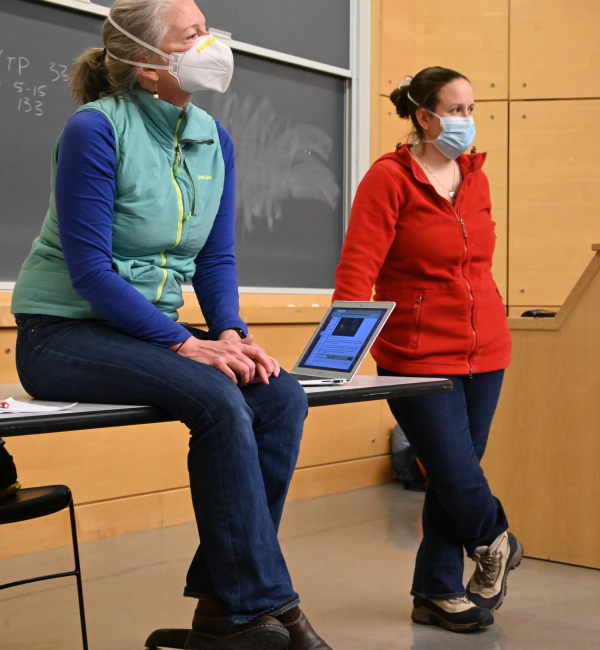Courses in Shelter Medicine
Introduction to Shelter Medicine (VTMED 6425)
Prerequisite: VTMED 5400. Highly recommended prerequisite: VTMED 6734. Enrollment limited to: third-year veterinary students.
L. DeTar, M. Henry.
The course will cover 8 hours of lecture on very basic shelter medicine principles, to include the history of sheltering and humane organizations, issues with pet overpopulation and free roaming companion animals, animal cruelty, an overview of preventive medicine and population health in shelters, sanitation and disinfection, and population management.
Advanced Shelter Medicine (VTMED 6434)
Spring. 1.5 credit. Letter grades only.
Prerequisite: VTMED 6425. Enrollment limited to: third-year veterinary students.
L. DeTar, M. Henry, J. Reed.
The course will cover more advanced topics in shelter medicine practice: management of common infectious diseases, facilities and housing, quality of life and humane euthanasia, behavioral programs, high quality high volume spay neuter, veterinary forensic exams, shelter neonates, community cats, safety net programs, and regulatory matters affecting shelters and shelter practice.
Companion Animal Welfare Issues (VTMED 6734)
L. DeTar, M. Henry, Staff.
Despite significant improvement being made over the last 10 years, homelessness remains one of the largest welfare issues for dogs and cats in this country with an estimated 3-4 million dogs and cats entering US animal shelters annually. While puppies and kittens and healthy adult dogs and cats are still euthanized in some shelters, euthanasia rates have dropped remarkably in the last decade. However, many animals are still bred and sold in the US in less than ideal conditions. The large population of free-roaming and feral cats is both a cause and effect of feline overpopulation; approaches to cat control are controversial and emotionally charged. Animal cruelty, abuse and neglect, including animal fighting and hoarding, represent issues with which veterinarians are becoming increasingly engaged in their communities. The number of well-intentioned pet owners seeking exotic companion animals as pets is increasing. As our community expands globally, welfare issues from abroad are also becoming more apparent. Other controversial issues that impact companion animal welfare include: non-therapeutic/elective surgeries, access to veterinary care, and quality of life measures with advancing technologies in veterinary medicine. The goal of the course is to provide the tools needed for veterinary students to assess the welfare of the companion animals they treat; and to provide information that enables them to begin developing their positions on some of the common companion animal welfare issues, allowing them to assume leadership roles with regards to such issues in their future communities.
Veterinary Forensic Medicine and Pathology (VTMED 6752)
Spring. 1 credit. Letter grades only.
Permission of instructor required. Enrollment limited to: third- and fourth-year veterinary students.
E. Demeter.
Veterinarians are uniquely qualified to recognize potential animal cruelty and are required to report suspected cruelty in the state of NY. The public demands that perpetrators of animal cruelty be held accountable, even though the definition of cruelty varies from state to state, and prosecution willingness varies by county. Although forensic medicine and pathology rely on the same basic principles and methods used for conventional veterinary medical investigations, the analytical framework and purpose differ significantly, as do the risks and rewards. If the investigation does not meet the needs of the court, the effort is wasted. Through lectures from the pathology and shelter medicine faculty as well as ASPCA forensic department guests, this course provides students with the theoretical framework and practical information needed to participate in animal cruelty investigations for live and deceased animals.The public care deeply about animal welfare and demand that perpetrators of animal cruelty be held accountable, even though the definition of cruelty varies from state to state. Veterinarians are uniquely qualified to recognize potential animal cruelty and are required to report suspected cruelty in the state of NY. Animal cruelty is but one facet of interpersonal violence. Although forensic medicine and pathology rely on the same basic principles and methods used for conventional veterinary medical investigations, the analytical framework and purpose differ significantly. If the investigation does not meet the needs of the court, the effort is wasted. Through lectures from the pathology and shelter medicine teams as well as ASPCA forensic department guests, this course provides students with the theoretical framework and practical information needed to conduct animal cruelty investigations for live and deceased animals.





